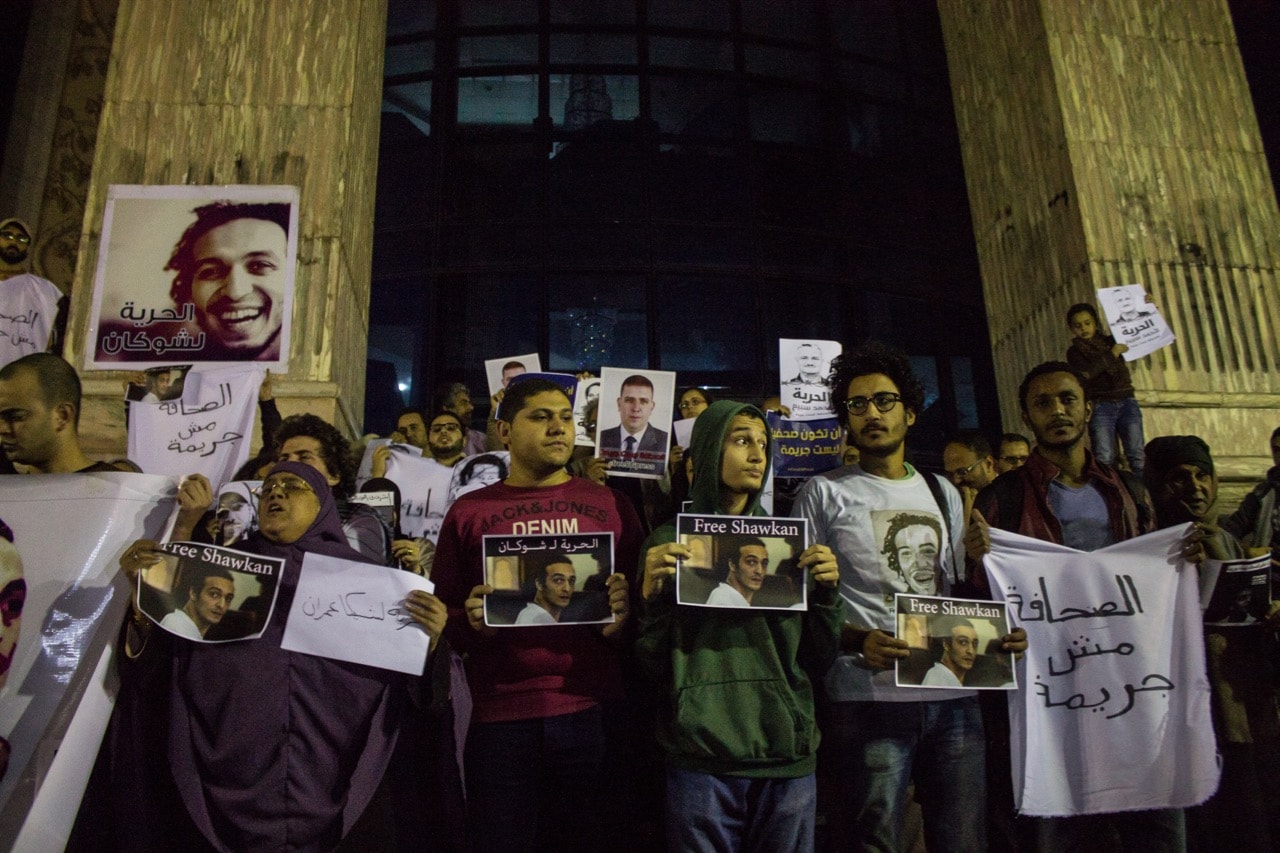All journalists portrayed by RSF were arrested since Gen. Abdel Fatah el-Sisi seized power in 2013.
This statement was originally published on rsf.org on 23 January 2019.
As French President Emmanuel Macron prepares to fly to Cairo on 27 January for a state visit, Reporters Without Borders (RSF) is publishing portraits of the ten most emblematic cases of journalists imprisoned in Egypt. All were arrested since Gen. Abdel Fatah el-Sisi seized power in 2013.
At least 32 Egyptian journalists are currently detained in Egypt, according to the information gathered by RSF. Most are detained preventively (many of them already longer than the maximum permitted period) and most do not know exactly what they are charged with. Four have been convicted by military courts in trials with no transparency and, by definition, illegal for civilians. Egypt is ranked 161st in the RSF Index.
The Egyptian authorities treat critical journalism as a grave threat to state security. Most of the imprisoned journalists worked for opposition media outlets that are now banned, or they covered sensitive subjects.
This is the case with Shawkan, a photographer arrested as he was about to cover the use of deadly force to disperse a Muslim Brotherhood sit-in; Ismail Alexandrani, a journalist and researcher who was writing about anti-terrorist operations in the Sinai Peninsula; Mohamed al Husseini Hassan, an independent journalist who tried to do a story about Egypt’s runaway inflation; and Moataz Wednan, a journalist who interviewed Hisham Genena, a former anti-corruption judge with information implicating senior officials.
In addition to the arbitrary nature of their detention, these journalists are being subjected to appalling conditions and are suffering from a lack of medical attention. According to the information obtained by RSF, the journalist and human rights defender Hisham Gaafar needs an urgent operation that has been postponed for months. The Egyptian public health system’s many flaws are made much worse by the prison system’s disorganization. The families of some detainees have even reported suicide attempts.
The persecution of Egyptian journalists does not stop when they are released from prison. They usually have to report to a police station at least once and often several times a week, are banned from leaving the country and are often threatened with further prosecution.
The portraits of the ten emblematic cases published by RSF today:
Mahmoud Abu Zeid, aka Shawkan, freelance photojournalist
Please refer to RSF’s statement for the other portraits.
Omar Mohamed Ali, freelance photographer and video reporter
Ismail Alexandrani, journalist and researcher specializing in Jihadi groups in the Sinai Peninsula
Mahmoud Hussein Gomaa, a journalist with Al Jazeera (which is banned in Egypt)
Hisham Gaafar, journalist and human rights defender
Moataz Wednan, journalist with, inter alia, the Huffington Post (which is blocked in Egypt)
Mohamed Ibrahim Mohamed Radwan, aka Mohamed Oxygen, a video blogger
Mohamed al Husseini Hassan, freelance photographer and video reporter
Hassan al Banna Mubarak, a novice freelance journalist
Ahmed al Sakhawy, freelance photographer and video reporter

RSF



